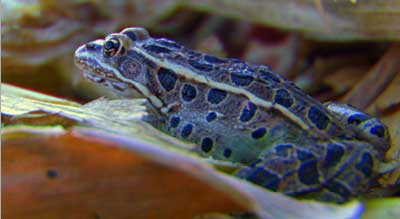GM CROPS
ENHANCE
BIODIVERSITY AND
AGRICULTURE
Renowned
Swiss Botanist
Dr. Klaus Ammann
Notes Advantages
of Genetic
Engineering and
Importance of
Biodiversity
 |
Many factors affecting biodiversity are directly and indirectly related to agriculture and the need to produce more food for more people on limited arable land. “The priority is to feed the people, but we must do it in a way to keep as much biodiversity as possible,” says Dr. Klaus Ammann, former director of the Botanical Garden and an Honorary Professor Emeritus at the University of Bern, Switzerland who stresses the importance of biodiversity.
Practices and technologies that increase the productivity of existing farmland is one way to help limit any negative impact on biodiversity. Critics often try to relate genetically modified (GM) crops with negative impacts, yet the advantages of genetic engineering related to biodiversity are documented. “I have screened thousands of studies and scientific peer-reviewed papers, and I have not seen single documentation of permanent negative impact on biodiversity done by genetically engineered crops. It’s a myth that this has happened,” continues Dr. Ammann, who studied botany at the University of Bern and at Duke University.
In fact, growers can more easily incorporate no-tillage practices with herbicide-tolerant GM crops, which generates improvements in soil life and fertility. Independent research and a decade of commercial-scale usage also demonstrates that non-target insects are more abundant in insect-tolerant GM crops (Bt crops).
“I cannot understand why people are against this technology,” says Dr. Ammann, a member of the Biosafety Committee for Switzerland. “If we want to survive as human beings on this planet, we need to produce more food on smaller amounts of land. This is certainly done best with biotechnology. We cannot do that by just romantically following on old-fashioned agriculture. We must come to terms with using modern technology.”
Editor’s Note: Dr. Ammann retired from the Botanical Garden at the University of Bern in February 2006. View related video “What is Biodiversity: GMO and Biotechnology’s Impact on Ecosystems and Habitat Loss”
